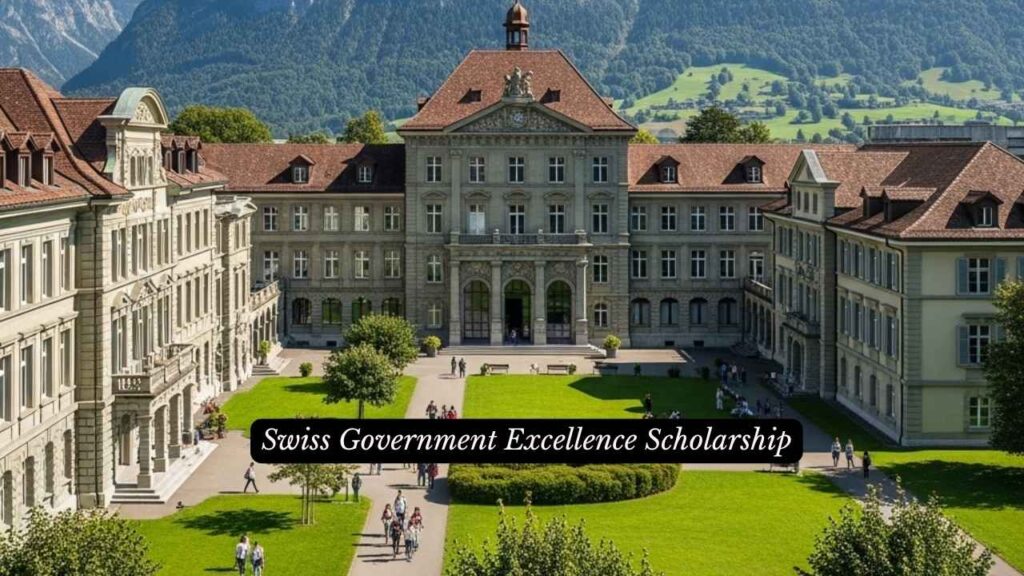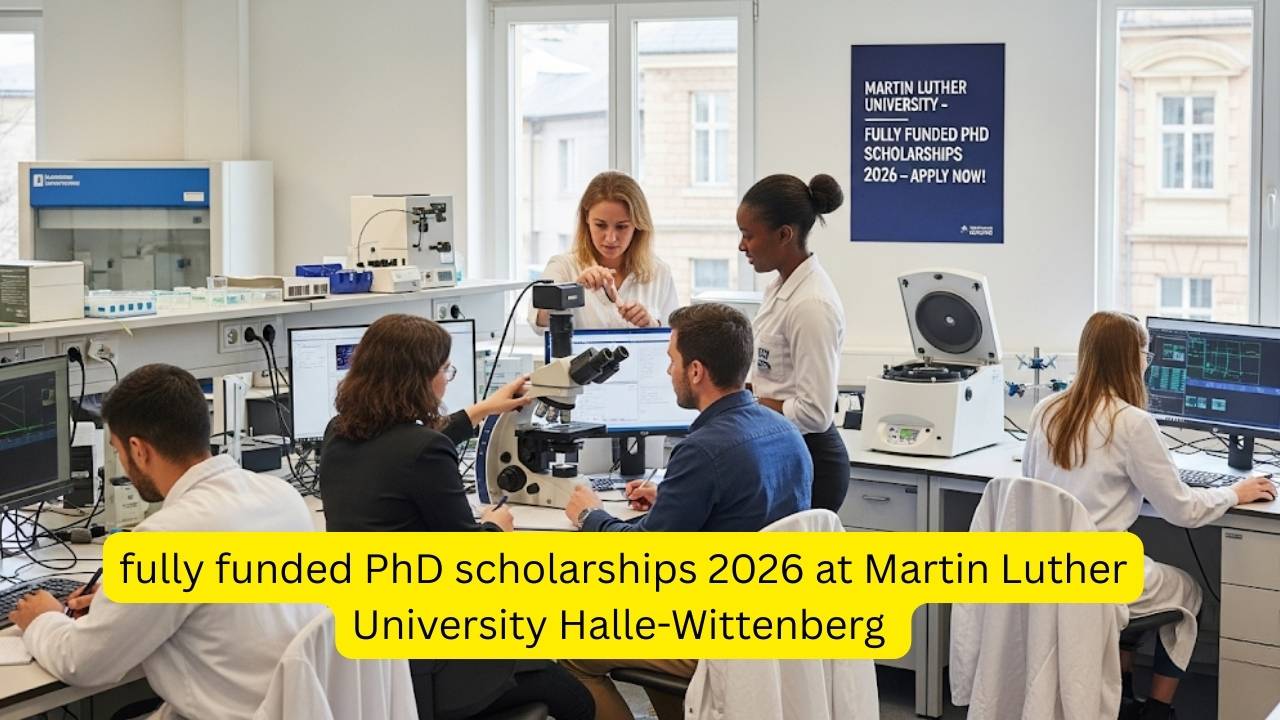Are you dreaming of pursuing your research or artistic endeavors in the heart of Europe, surrounded by academic excellence and breathtaking landscapes? The Swiss Government Excellence Scholarship for the 2026 intake offers an unparalleled opportunity for highly qualified international students and researchers. This prestigious scholarship can transform your academic and professional trajectory, but the competition is fierce. As someone who has advised numerous successful applicants, I understand the nuances that make an application stand out. This article will provide you with seven fresh, actionable tips to significantly boost your chances of securing this coveted scholarship.

The Swiss Government Excellence Scholarship at a Glance
For those new to this incredible opportunity, here’s a quick overview of what the Swiss Government Excellence Scholarship entails.
| Key Fact | Detail/Statistic |
| Scholarship Types | Primarily for postgraduate researchers (Research Fellowship, PhD, Postdoc) and artists (Master’s degree). Swiss Government Excellence Scholarships 2026 – 2027 |
| Eligibility | Varies by country and scholarship type. Generally requires a Master’s degree (for research) or Bachelor’s (for art), specific age limits, and an academic supervisor’s support for research scholarships. |
| Funding | Monthly payment (e.g., CHF 1,920 for research/PhD/art, CHF 3,500 for Postdoc), health insurance premiums for non-EU/EFTA citizens, one-time rental deposit grant, Half-Fare Travelcard, and a return flight allowance for non-EU/EFTA citizens. Does not cover tuition fees at all universities. |
| Application Period | Generally opens in August and closes between September and December, depending on the applicant’s country of origin. |
| Selection Criteria | Candidate profile (academic background, research capacity, motivation), quality of the research project/artistic work (originality, methodological soundness), and synergies with Swiss research/potential for future cooperation. ESKAS – Swiss Government Excellence Scholarships for Foreign Scholars – SARECO |
Winning the Swiss Government Excellence Scholarship for the 2026 intake is an ambitious but achievable goal. It requires meticulous preparation, a compelling narrative, and a deep understanding of what the selection committee seeks. By focusing on securing an early supervisor, crafting an original research proposal, perfecting your motivation letter, demonstrating language proficiency, preparing for a potential interview, understanding the financial landscape, and leveraging networks, you significantly enhance your application. Begin your preparations now, and take a confident step towards your Swiss academic adventure!
1. Early Bird Catches the Swiss Alps: Start Your Supervisor Search NOW
One of the most critical components of a successful Swiss Government Excellence Scholarship application, especially for research fellowships, PhD, and Postdoc scholarships, is securing an academic supervisor in Switzerland. This isn’t just a formality; it’s a fundamental requirement. The Federal Commission for Scholarships for Foreign Students (FCS) explicitly states that only candidates nominated by an academic mentor will be considered.
In my experience advising students, one common hurdle is underestimating the time and effort required to find a supervisor. Professors at Swiss universities receive numerous inquiries, so a well-prepared, targeted, and personal approach is essential. Start researching potential supervisors whose research aligns perfectly with your interests and proposed project. Look at university websites, faculty profiles, and recent publications. When you reach out, include a short CV, a compelling letter of motivation, and a concise 2-3 page research plan. Remember, this early engagement demonstrates your proactive nature and serious commitment.

2. Craft a Research Proposal That Sings: Originality is Key
Your research proposal is the heart of your application. It’s not just about outlining your project; it’s about showcasing your intellectual prowess, innovative thinking, and the potential impact of your work. The FCS assesses proposals based on originality, methodological soundness, and the potential for future research cooperation.
Think beyond a mere description. What makes your research unique? What gap in knowledge does it address? How will your methodology ensure rigorous and valid results? Ensure your proposal clearly defines your research question, objectives, and expected outcomes. Provide a detailed timeline and explain how your research fits within the host institution’s expertise. Clarity and conciseness are paramount, so avoid jargon where possible, or explain it clearly.
3. The Power of Persuasion: Your Motivation Letter Matters More Than Ever
While your academic achievements speak volumes, your motivation letter provides a window into your passion, aspirations, and why you are the ideal candidate for the Swiss Government Excellence Scholarship. It’s your chance to connect the dots between your past experiences, your proposed research, and your future goals.
Don’t just rehash your CV. Instead, tell a story. Why Switzerland? Why this specific university or research group? How will this scholarship enable you to achieve your long-term ambitions? Be authentic and specific. For instance, rather than saying “I am passionate about environmental science,” elaborate on a specific environmental challenge you aim to address and how your studies in Switzerland will equip you to tackle it. Tailor your letter to the scholarship’s goals and demonstrate how you align with its mission of fostering international exchange and research cooperation.
4. Leverage the Language Advantage: Proficiency is Non-Negotiable
Switzerland has four official languages: German, French, Italian, and Romansh. While many programs, especially at the postgraduate level, are taught in English, language proficiency is often a crucial requirement. The specific language requirements depend on your chosen program and university.
Ensure you meet the specified language proficiency tests (e.g., TOEFL, IELTS, DELF, Goethe-Zertifikat) and provide official scores. If your program is in English, strong English proficiency is expected. If you plan to immerse yourself in the local culture or your research involves interactions in a local language, highlighting any proficiency in German, French, or Italian can be a significant advantage, even if not explicitly required for your program.
5. Master the Interview: Practice Makes Perfect
For some applicants, especially those progressing to the final stages, an interview might be part of the selection process. This is your opportunity to demonstrate your confidence, clarity of thought, and genuine enthusiasm for your project and for studying in Switzerland.
Be prepared to discuss your research proposal in detail, explain your motivations, and articulate how you see yourself contributing to the academic community in Switzerland. Practice answering common interview questions, such as “Why Switzerland?”, “Why this program?”, “What are your long-term goals?”, and “How will you handle challenges during your studies?”. Research the interviewers if possible and be ready to ask insightful questions of your own. Your confidence and genuine interest will shine through.
6. Budget Wisely: Understand the Financial Landscape
While the Swiss Government Excellence Scholarship offers substantial financial support, it’s crucial to understand the cost of living in Switzerland. Switzerland is known for its high cost of living, particularly in major cities like Zurich and Geneva.
The scholarship aims to cover basic living expenses, and it is generous. However, be aware that it does not always cover tuition fees, and these can vary significantly between universities (public universities generally have lower fees than private ones). For instance, public university tuition fees can range from CHF 500 to CHF 2,000 per semester, while monthly living expenses can average between CHF 1,500 and CHF 2,500. Having a realistic understanding of these costs will help you manage your finances and demonstrate your preparedness in your application.
7. Connect and Engage: The Power of Networking and Alumni Insights
Beyond the formal application, connecting with current or former Swiss Government Excellence Scholarship holders can provide invaluable insights and advice. Many universities and scholarship bodies have alumni networks or online communities.
Consider reaching out (respectfully) to alumni on platforms like LinkedIn. Their experiences can offer a unique perspective on navigating the application process, settling into Switzerland, and making the most of the scholarship. While official channels are your primary source of information, hearing from those who have walked the path before you can be incredibly encouraging and informative.
Swiss Excellence Scholarship 2026: Fully Funded Opportunities for International Scholars
A Comprehensive Guide to Sapienza University of Rome Scholarships 2025
FAQ
Q1: When do applications for the Swiss Government Excellence Scholarship for 2026 intake typically open?
Applications for the Swiss Government Excellence Scholarship typically open in August each year for the following academic year’s intake. The specific deadlines usually fall between September and December, varying by the applicant’s country of origin. It’s crucial to check the official State Secretariat for Education, Research and Innovation (SERI) website for the exact dates relevant to your nationality.
Q2: Is there an age limit for the Swiss Government Excellence Scholarship?
Yes, there are often age limits. For Research Fellowships and PhD scholarships, applicants must generally be born after December 31, 1990 (for the 2025-26 intake, this would likely adjust to December 31, 1991, for the 2026 intake). Postdoctoral candidates usually have different age criteria, often requiring their PhD to have been awarded within the last few years. Always refer to the specific country-level requirements on the official SERI scholarship page.
Q3: Do I need to have a university admission offer before applying for the scholarship?
For research scholarships (Research Fellowship, PhD, Postdoc), you typically do not need a formal admission offer from a Swiss university before applying for the scholarship. However, you must have a letter of support from an academic supervisor at a Swiss university who is willing to direct and guide your proposed research. For Art Scholarships, applicants usually need to have already been awarded a place to study at a Swiss conservatory or university of the arts.
Q4: What are the key elements of a strong research proposal for this scholarship?
A strong research proposal should be original, methodologically sound, and clearly articulate its significance. Key elements include a well-defined research question, clear objectives, a detailed methodology, an achievable timeline, and a clear explanation of how your project aligns with the expertise of your chosen Swiss supervisor and institution. It should also highlight the potential for future research cooperation.










